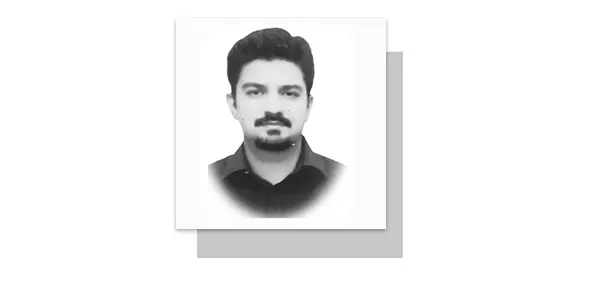IN the hushed corridors of Pakistan’s hospitals, a curious phenomenon unfolds with alarming regularity. Senior government officials, bureaucrats, and politicians pay visits to these medical institutions, their attention steadfastly fixed on matters that, in the grand scheme of healthcare, seem almost trivial. Their scrutiny zeroes in on the cleanliness of public restrooms and the dust that accumulates on hospital shelves. Meanwhile, the very essence of healthcare—workload, waiting times, health outcomes, medicine and equipment supplies, implementation of standard operating procedures, waste management and workforce training—remains consigned to the periphery of their focus.
As a healthcare veteran with over 15 years of experience in various capacities, I’ve witnessed this short-sighted approach time and again. It’s a disconcerting testament to the misguided priorities that have plagued our healthcare system, and it is high time we redirected our gaze towards what truly matters. In countless visits to hospitals, the elite and powerful seem entranced by the aesthetics of the facilities. Public restrooms must gleam with cleanliness, and not a speck of dust should mar the hospital shelves. While cleanliness is undoubtedly important, it should not eclipse the pressing healthcare challenges facing our nation.
Our healthcare landscape is fraught with pressing challenges. We grapple with some of the world’s highest infant, prenatal, and maternal mortality rates. The spectre of polio refuses to be banished. Diabetes prevalence continues its inexorable rise, while access to clean drinking water eludes a significant portion of our population. Worse yet, nearly 60% of the medications in circulation are counterfeit, endangering countless lives.
Amidst this backdrop, one cannot overlook the role of NGOs and vertical programs that dot the healthcare landscape. While these organizations often have laudable missions, their effectiveness has been a subject of debate. Many operate in isolation, focusing on specific diseases or issues without a comprehensive, integrated approach. The result is a fragmented healthcare system that struggles to address the broader health needs of our population. In the face of these challenges, our healthcare system stands at a crossroads. The prevailing focus on superficial aspects of healthcare, such as hospital cleanliness, may offer a veneer of progress, but it does little to address the root causes of our healthcare woes. It is time for a paradigm shift—a shift from the banality of clean toilets to the urgency of comprehensive healthcare reform.
As we embrace this new path, we must advocate for an equitable allocation of resources. A larger healthcare budget that is distributed judiciously will empower us to address our critical healthcare challenges and bolster our primary healthcare infrastructure. Investing in preventive healthcare programs, coupled with rigorous training and capacity building for our healthcare workforce, is imperative. Moreover, our political leaders and influential figures must shift their focus from superficial hospital aesthetics to the deeper issues that undermine our nation’s health. Initiatives aimed at improving healthcare outcomes, expanding access to clean drinking water, and ensuring the availability of genuine medications should take precedence.
In parallel, we must adopt a proactive approach that involves community education and empowerment. Encouraging healthy lifestyles, ensuring access to clean water sources, and promoting mental health awareness should be integral components of our healthcare strategy. Pakistan stands at a crossroads in its healthcare journey, with the power to effect transformative change. It is time for a collective awakening that elevates the health and well-being of our nation to its rightful place of prominence. The true measure of our healthcare system’s success lies not in the opulence of our hospitals but in the vitality of our communities. Only then can we hope to emerge from the shadows of sickness into the light of health, vitality, and a brighter future for Pakistan.
—The writer is Associate Professor of Public Health, Al-Shifa School of Public Health, based in Rawalpindi.
Email: drahmedabdullah83@gmail.com










